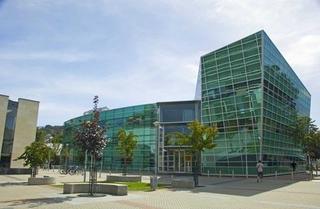Study Fishery studies abroad
Fishery studies are aimed at imparting academic and practical knowledge about rearing, breeding and harvesting fish. A degree in Fishery studies is great way to pursue your passion for aquaculture and work towards building a rewarding career.

More than 26 colleges in the US offer degrees in fishery sciences

Fisheries sciences opportunities are projected to grow by 8%
Fishery graduates earn on per year in USA

527% increase in global aquaculture production
About Fishery studies
Is Fishery studies right for me?
Fishery studies study options and costs

Future outlook
Career pathways for Fishery studies graduates

Fisheries Biologist
They are wildlife biologists who works with fish stocks in aquatic areas evaluating trends, stocks and changes in the environment.
Fisheries Officer
The resource management of a fishery facility is overseen by a fisheries officer. They frequently supervise activities that may have an impact on endangered or threatened species.
Fishery Manager
Fishery managers are responsible for overseeing all parts of a fishery, including screening cultivation areas, monitoring the growth of fish, maintaining equipment, preparing food, prescriptions, and collaborating with other fishery managers.
Fishery technician
A fisheries technician oversees and assists with the day-to-day operations of a fishery. They are in charge of feeding and caring for the fish, as well as the overall facility upkeep.
Fishery Observer
Fisheries Observers are the fisheries' eyes and ears on the water and at-sea monitors. They gather information from commercial fishing and processing vessels, as well as shore side processing businesses and receiving vessels.
Fisheries Development Officer
They provide technical help, such as introducing new fishing tactics and planning and conducting training in fish quality and handling practices, vessel operations, at-sea safety, and fishing and fish-finding technology. They impart training for safe fishing operations to fishing captains and crews.
提供的獎學金
-
At University of Alberta

Edmonton , Canada

資格
Master's Degree

資助類別
Fee waiver/discount
-
At The University of Otago

Dunedin , New Zealand

資格
Masters Degree

資助類別
Fee waiver/discount
-
At University of Canterbury

Nelson , New Zealand

資格
Masters Degree

資助類別
Fee waiver/discount







我們開始吧!
一鍵註冊或登入
檢視清單 或關閉此視窗以繼續搜尋